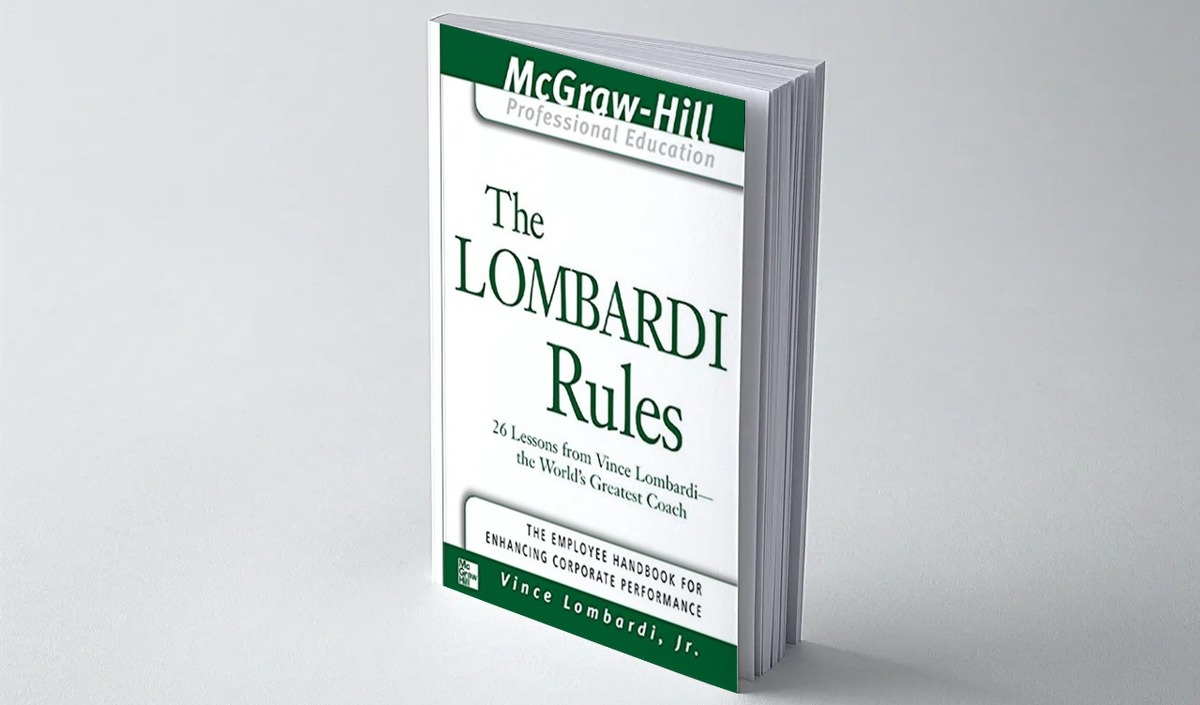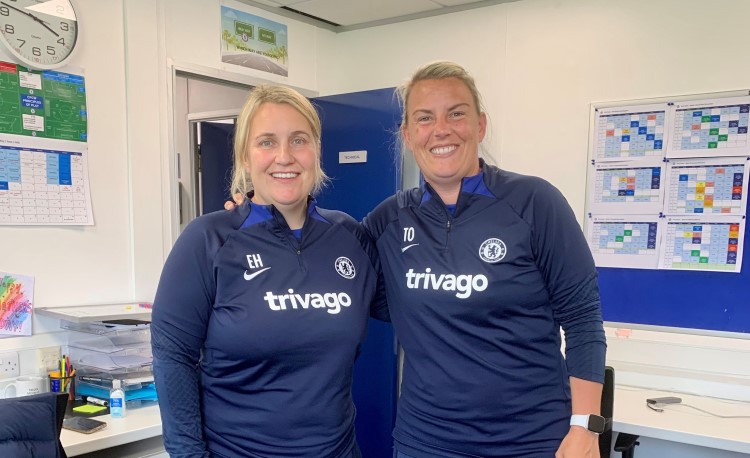NEXT ELITE SOCCER COACHING AWARD COHORT STARTS FEBRUARY 16 - ENROL NOW
You are viewing 1 of your 1 free articles
How to win the Lombardi way
Vince Lombardi was coach of the Green Bay Packers, a lacklustre American football team that he transformed into champions during the 1960s. Wherever you read a memorable sporting quotation, Lombardi is never far away – the man was a walking fount of potted wisdom on the leadership qualities, personal commitment and discipline that contribute to making a successful team. How ironic then that the Green Bay Packers won the Superbowl XLV with a reputation as a badly behaved, if talented, bunch of sportsmen. Lombardi will be turning in his grave.
The Lombardi Rules is a business book, compiled by the great man’s son and one of many sources of Lombardisms. Touted as “The Employee Handbook for Enhancing Corporate Performance” it is usually found on the professional education shelves, though it has as much if not more relevance to a football coach, hence its selection for review here.
At first glance the headline ‘rules’ look commonplace, almost workaday instructions that you might expect from any leader worthy of the name. “Be completely committed” (why would you want or expect anything else?), “Be prepared to sacrifice”, “Build confidence”, and “Lead with integrity” are all so much motherhood and apple pie. The interesting parts of this little volume are the insights within the rules – there is a two-page description for each of the 26 lessons – that provide the illumination. Coaches interested in learning about ways to develop themselves will find much to ponder and selectively adopt.
There are three broad themes, applicable to any coach that aspires to great leadership:
- Only by knowing yourself can you become an effective leader.
- A leader must build the crucial attributes of character and integrity.
- Use techniques to translate strength of character into successful leadership.
To know yourself you must be honest, ask yourself tough questions and play to your strengths – each a rule in its own right. Building from a rigorous self-evaluation, a leader must ‘write’ his character by learning from hardship, applying discipline and following role models or heroes.
In line with these first few rules, Lombardi was a human dynamo, often being the first to arrive at the office and the last to leave. His example supports the theory that leaders are made not born – it is apparent from the rules that Lombardi spent a great deal of time thinking, testing and analysing his approach as he built himself as a leader. He wasn’t born to the task.
Part of strength of character, Lombardi felt, is commitment. The coach must be committed and his players must give their all.
When he arrived at the Packers in 1959, he judged that perhaps half the team gave 100% most of the time. He told his players that to win a championship they all had to give 100%, all of the time. (This might provide a fun analysis to conduct with an amateur team.)
Lombardi’s answer to increasing effort levels was to inspire those around him by raising his own level of commitment. He then ruthlessly pursued a policy of weeding out those not working as hard as they could on the basis that an organisation that wins is populated by winners.
Perhaps the most famous quote attributed to Lombardi was his observation: “Winning isn’t everything, it’s the only thing.” That statement was in fact first uttered by UCLA football coach Red Sanders, but it comes pretty close to Lombardi’s mantra.
Lombardi’s rules cover all the bases of player behaviour, and he was the complete coach in his messianic quest for success. He monitored not just skill development of players but their attitudes. These, he believed, should continue to improve as hard work paid off – especially after players have a couple of wins under their belts.
The words “teaching” and “coaching” are used interchangeably by Lombardi because he saw himself as both – a moulder of men. “They call it coaching, but it is teaching. You do not just tell them it is so, but you show them the reasons why it is so and you repeat and repeat until they are convinced, until they know.”
Though he was a strict disciplinarian – “do it again” was his favourite training ground rejoinder – he held back however, from being a total dictator. “I never need to tell a player ‘this is my way, now do it’. Instead, I say ‘this is the way we do it and this is why we do it’.”
Explaining the whys is an important Lombardi rule that emphasises the importance of all players understanding the underlying reasons for their actions. And for all players to understand it is imperative for the teaching and coaching to be aimed at the slowest. “The strategy must be crystal clear to everyone in the organisation. This means drilling it until the slowest member of the team has it down.”
‘Keep it simple’ characterised Lombardi’s approach to game tactics.
Rather than have an extensive playbook he would far prefer his players to know a few plays thoroughly. “Almost always, the plan is too complex. Too much to learn and perfect in too little time.”
For a perfectionist like Lombardi, aiming at the top is never without sacrifice or side-effects. Lombardi’s home life was, according to his wife’s accounts, characterised by his authoritarian rule, tempers and sulks, and bouts of depression. Lombardi died in 1970 at the relatively early age of 57.
Lombardi’s son inevitably sums up his father’s philosophy more warmly. “It’s about finishing first...but it’s also about being a person of character, finishing what you start, never compromising your goals, and giving everything you’ve got to achieve your goals.”
The Lombardi Rules - 26 Lessons from Vince Lombardi – the World’s Greatest Coach Vince Lombardi. Jr. McGraw Hill 52pp / Amazon.
Editor's Picks
Attacking transitions
Deep runs in the final third
Using the goalkeeper in build-up play
Intensive boxes drill with goals
Penetrating the final third
Creating and finishing
My philosophy
Pressing initiation
Compact team movement
Coaches' Testimonials

Alan Pardew

Arsène Wenger

Brendan Rodgers

Carlos Carvalhal

José Mourinho

Jürgen Klopp

Pep Guardiola

Roy Hodgson

Sir Alex Ferguson

Steven Gerrard
Coaches' Testimonials

Gerald Kearney, Downtown Las Vegas Soccer Club

Paul Butler, Florida, USA

Rick Shields, Springboro, USA

Tony Green, Pierrefonds Titans, Quebec, Canada
Join the world's leading coaches and managers and discover for yourself one of the best kept secrets in coaching. No other training tool on the planet is written or read by the calibre of names you’ll find in Elite Soccer.
In a recent survey 92% of subscribers said Elite Soccer makes them more confident, 89% said it makes them a more effective coach and 91% said it makes them more inspired.
Get Monthly Inspiration
All the latest techniques and approaches
Since 2010 Elite Soccer has given subscribers exclusive insight into the training ground practices of the world’s best coaches. Published in partnership with the League Managers Association we have unparalleled access to the leading lights in the English leagues, as well as a host of international managers.
Elite Soccer exclusively features sessions written by the coaches themselves. There are no observed sessions and no sessions “in the style of”, just first-hand advice delivered direct to you from the coach.







